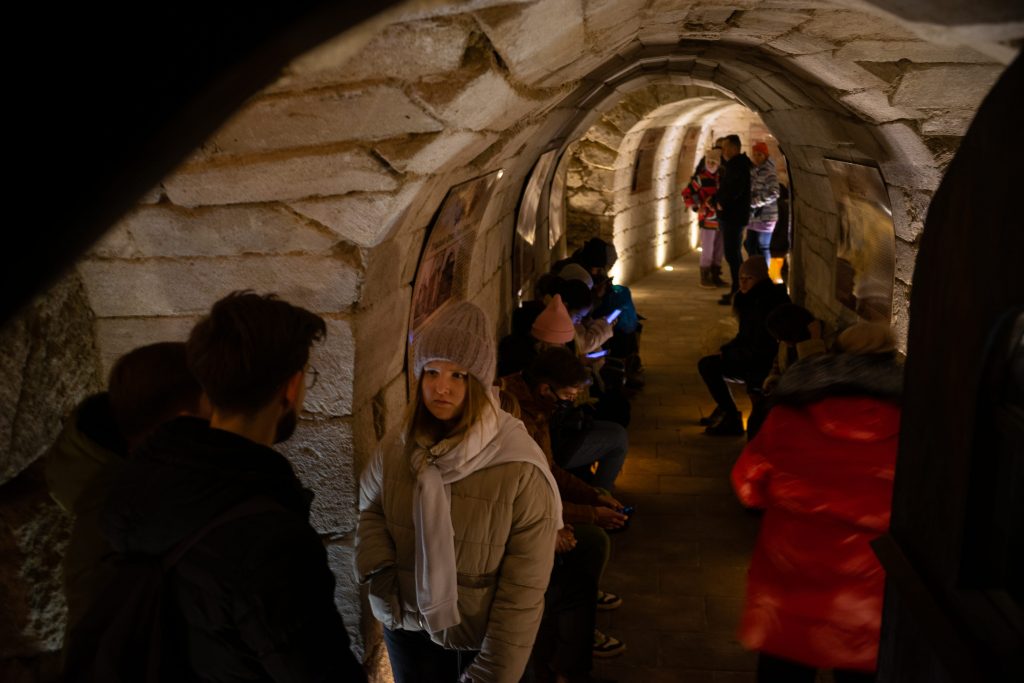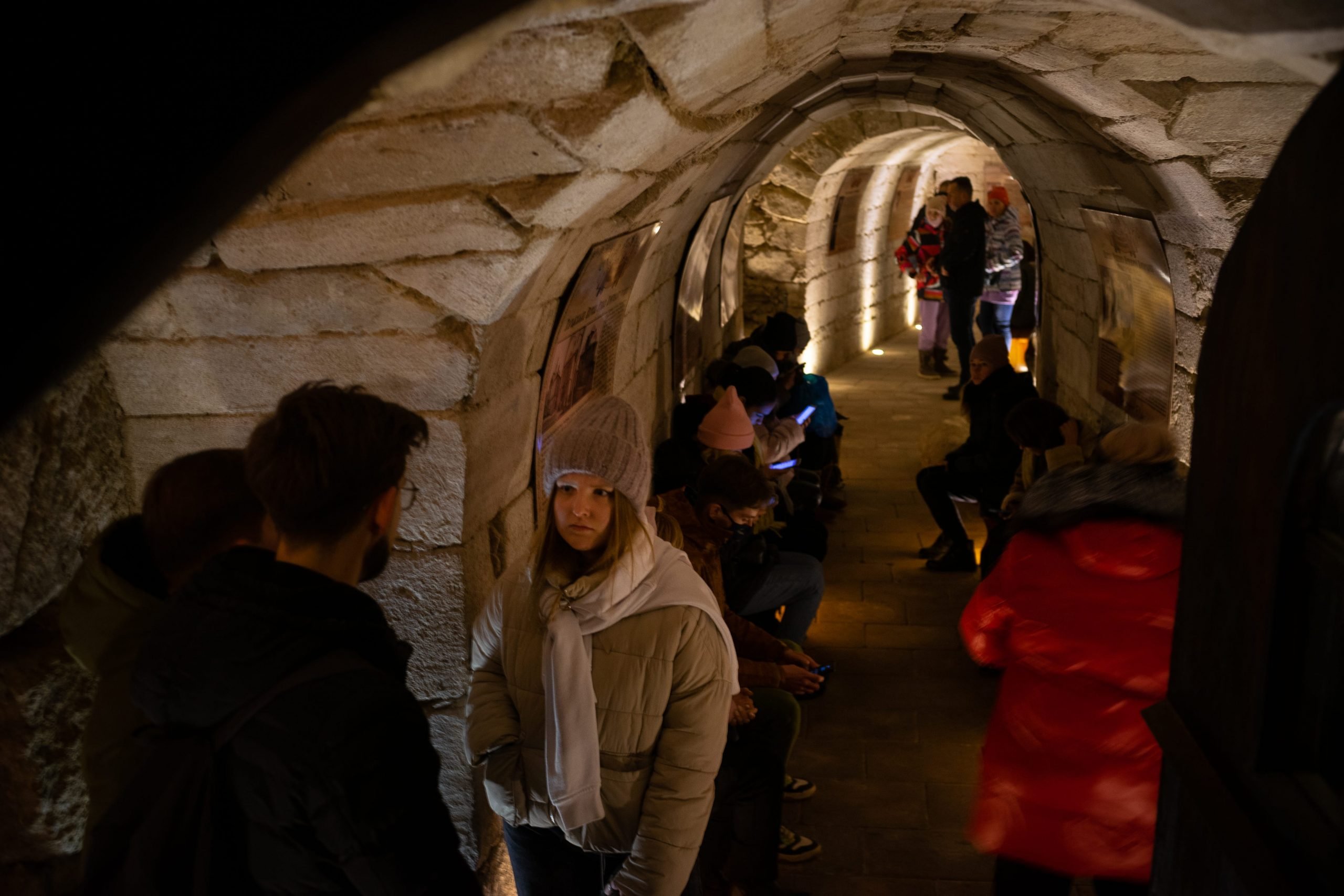
Ternopil, Ukraine – The basement crypt at the Cathedral of the Conception of the Blessed Virgin Mary, a landmark 18th century structure that was heavily damaged during the Second World War and restored afterwards, has been turned into an air raid shelter.
The city of Ternopil, some 80 miles east of Lviv and Ukraine's border with Poland, is hundreds of miles from the active front lines further east, north, and south. But Russian air and missile attacks have all of Ukraine within range.
Air raid sirens blare through the city several times a day, sending some residents toward the crpyt for safety. Others head to the basements of other large buildings for shelters. Internet access remains adequate and most people pass the time texting with friends and loved ones and reading the news.
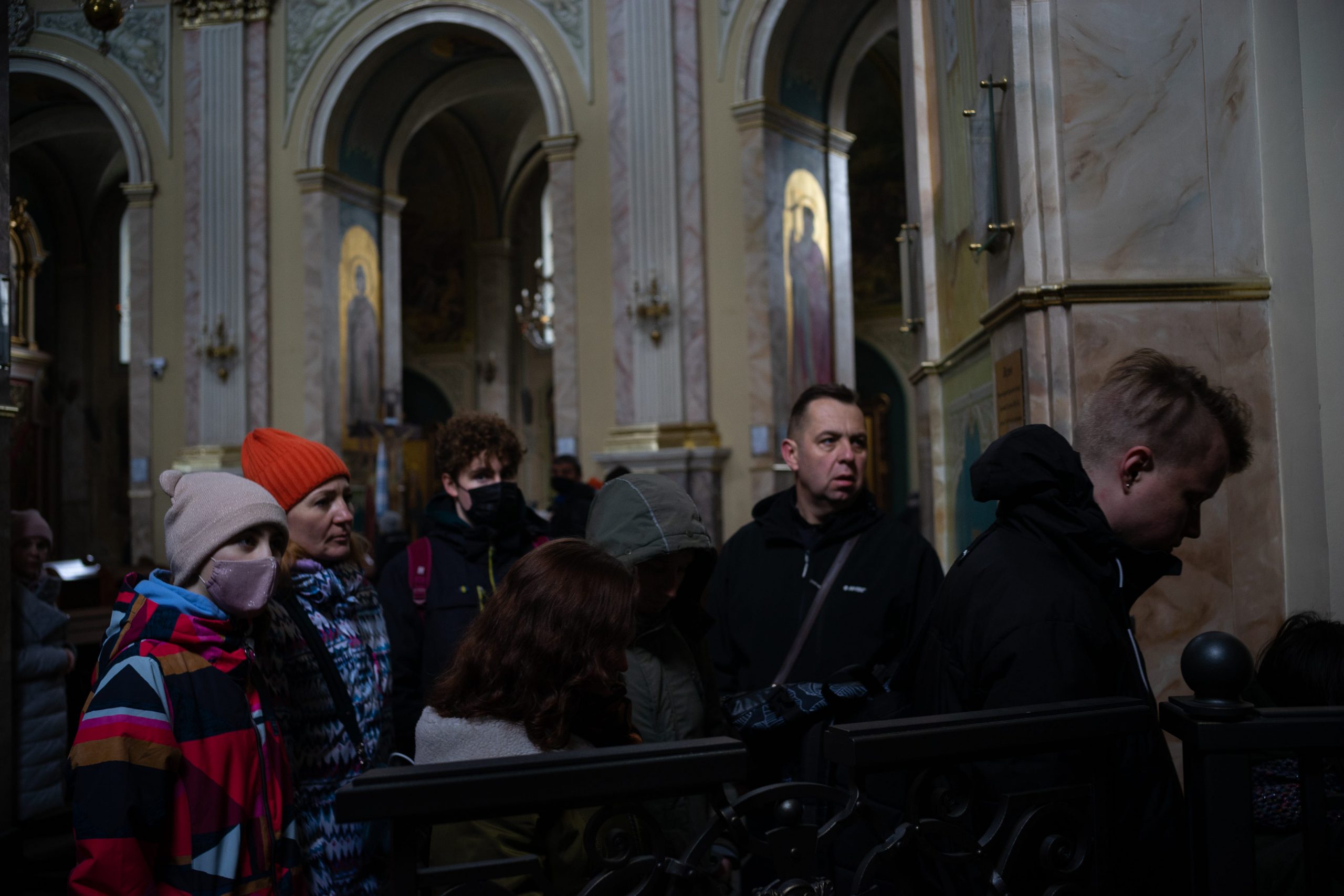
Early in the afternoon on Sunday, air raid sirens started blaring. Dozens of people descended the narrow stairs into the shelter. One woman slipped and Father Roman Demush helped steady her to her feet. He said that many churches had prepared bomb shelters in the past weeks as the ecclesiastical leadership had instructed them to create safe spaces.
"We must help with the overflow of people coming here [from Kyiv and other regions of Ukraine] and we are providing not just physical safety but also spiritual comfort," Father Demush told me. "We've had sirens for three days now. Death has never been this close. People are truly in fear. They say war doesn't have non-believers, so we ask God in prayer to protect and save. To live through such trying times is much easier with God – than without."
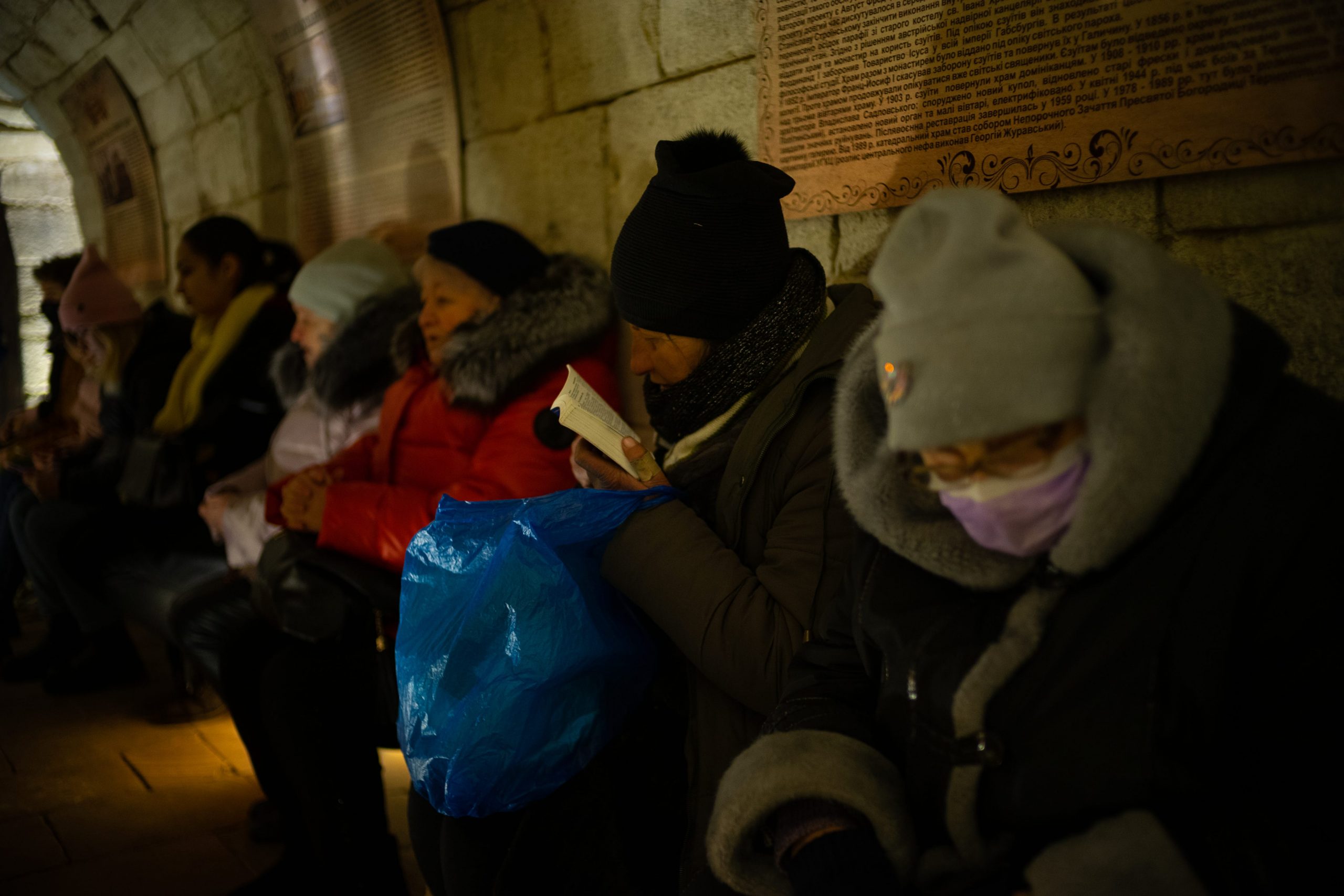
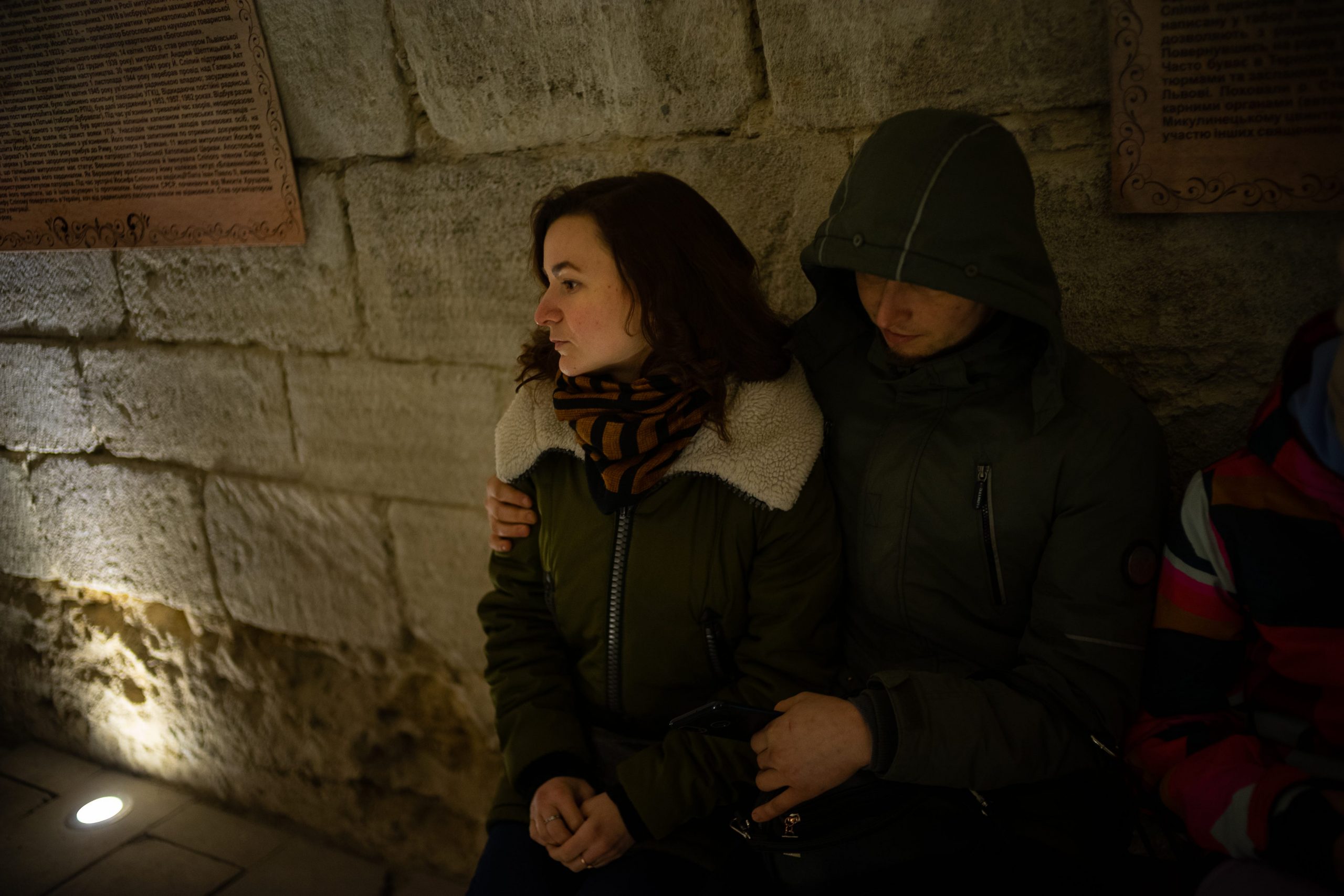
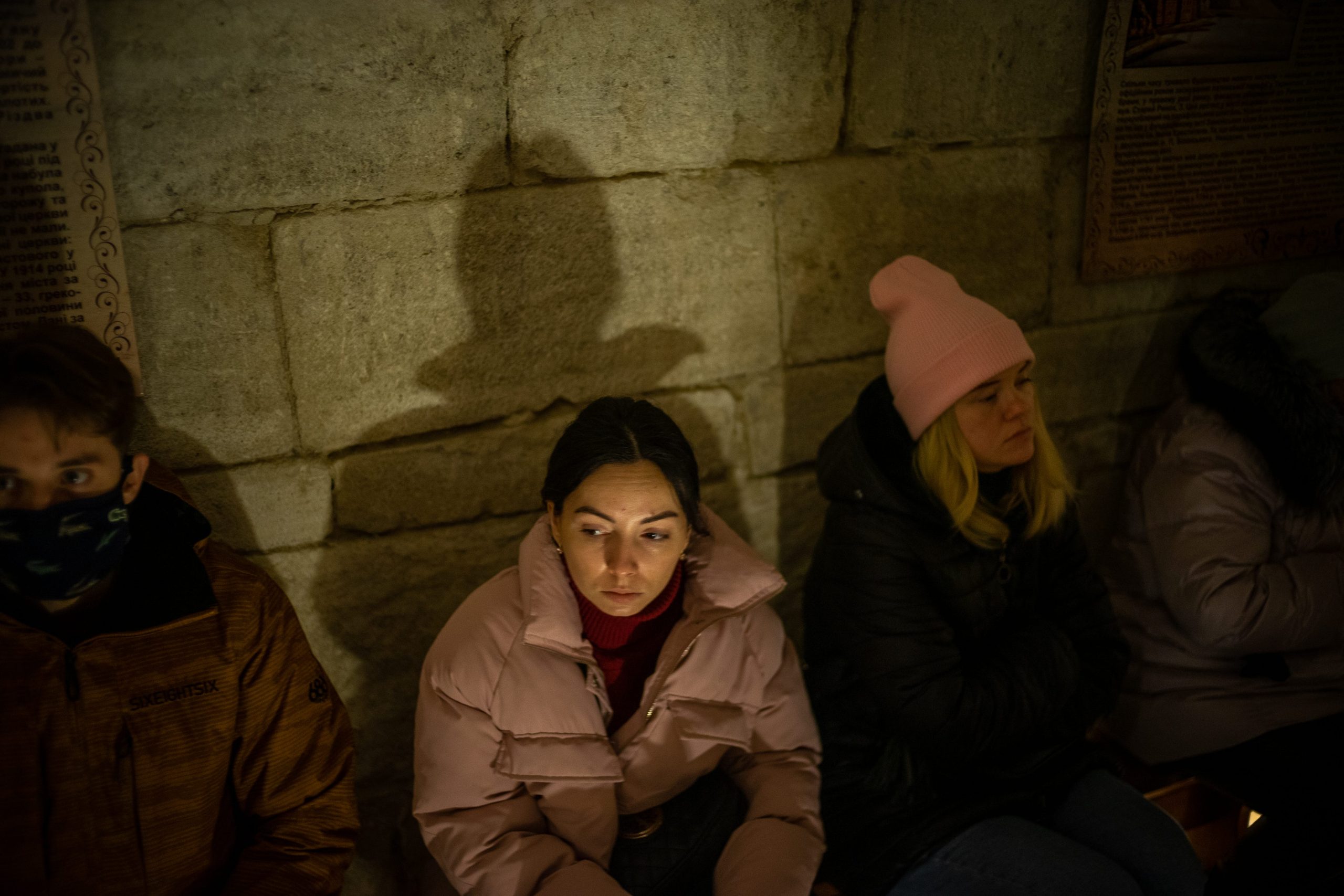
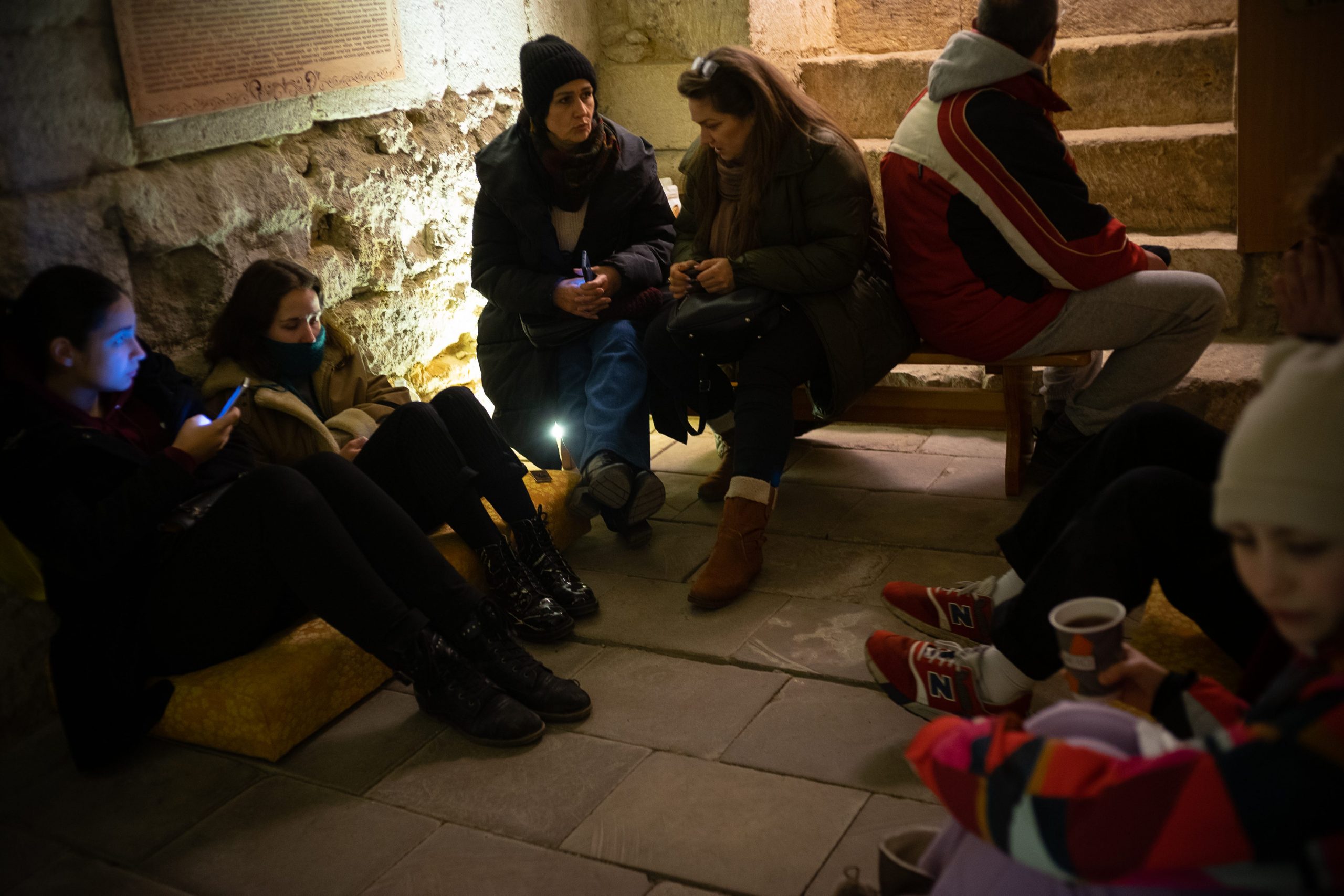
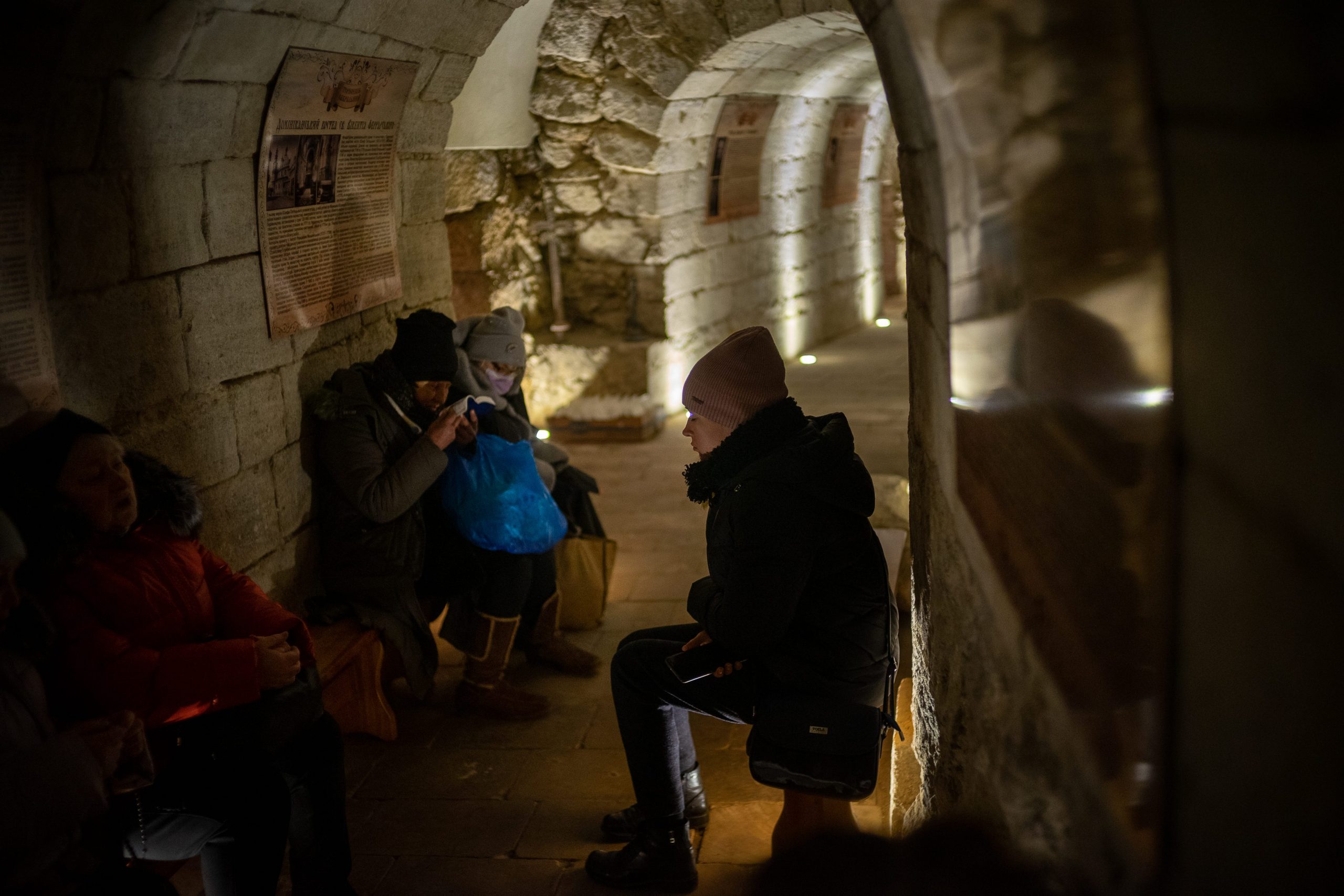
Olga Bagriy, a teacher from Kyiv, Ukraine's capital, was among those seeking refuge. "I love this church," she told me. "They give tea, food, and water."
Her family left Kyiv after Feb. 25 – the second night of Russian bombing. "I came with my family – we decided to go when we heard the night sirens. The children were very much afraid. It was 5 am."
Along with her husband and two sons, they headed toward Ternopil, where the family has property. She said she welcomes the quiet. "The city is peaceful so far. But I have no idea how long we have to stay," she said.
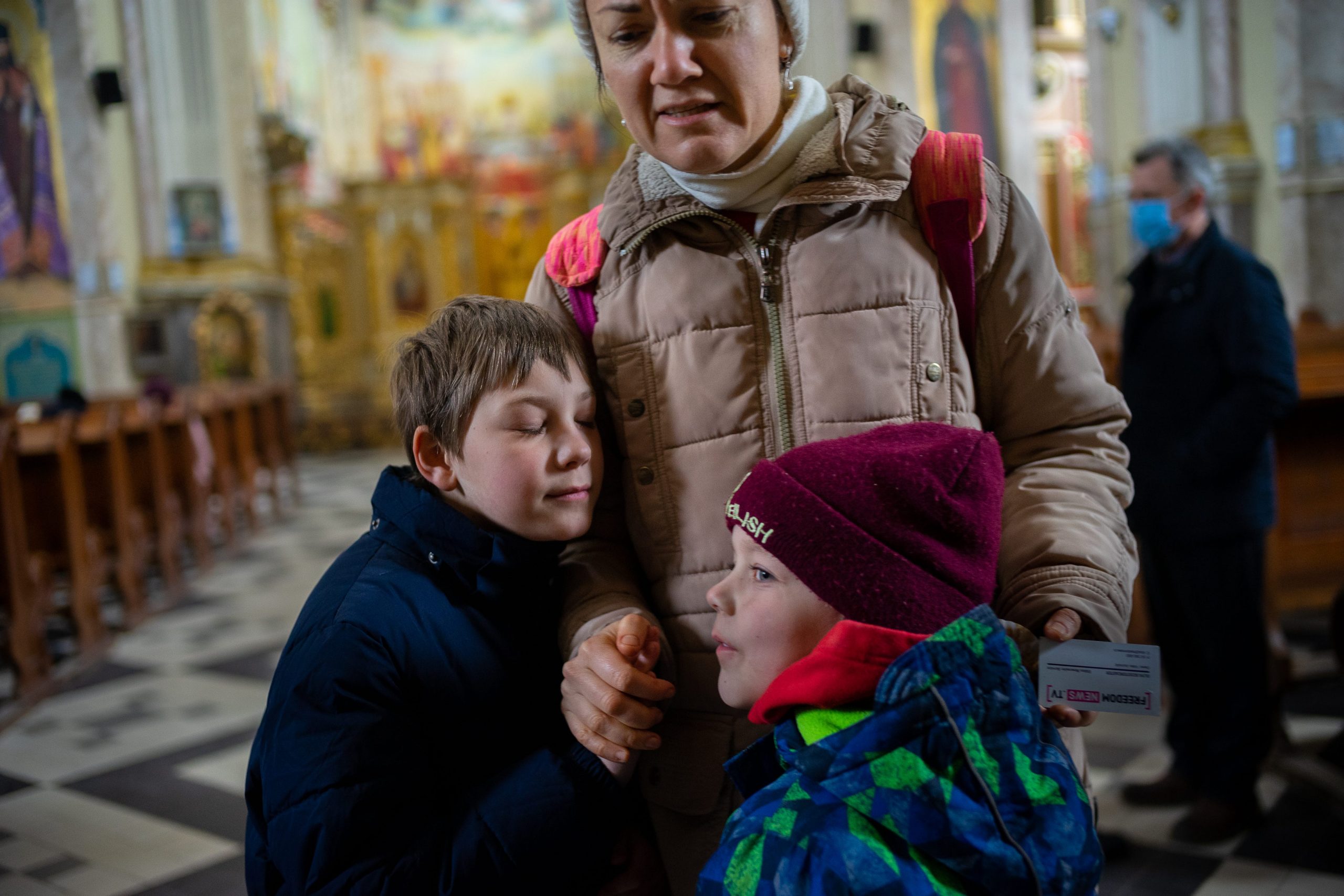
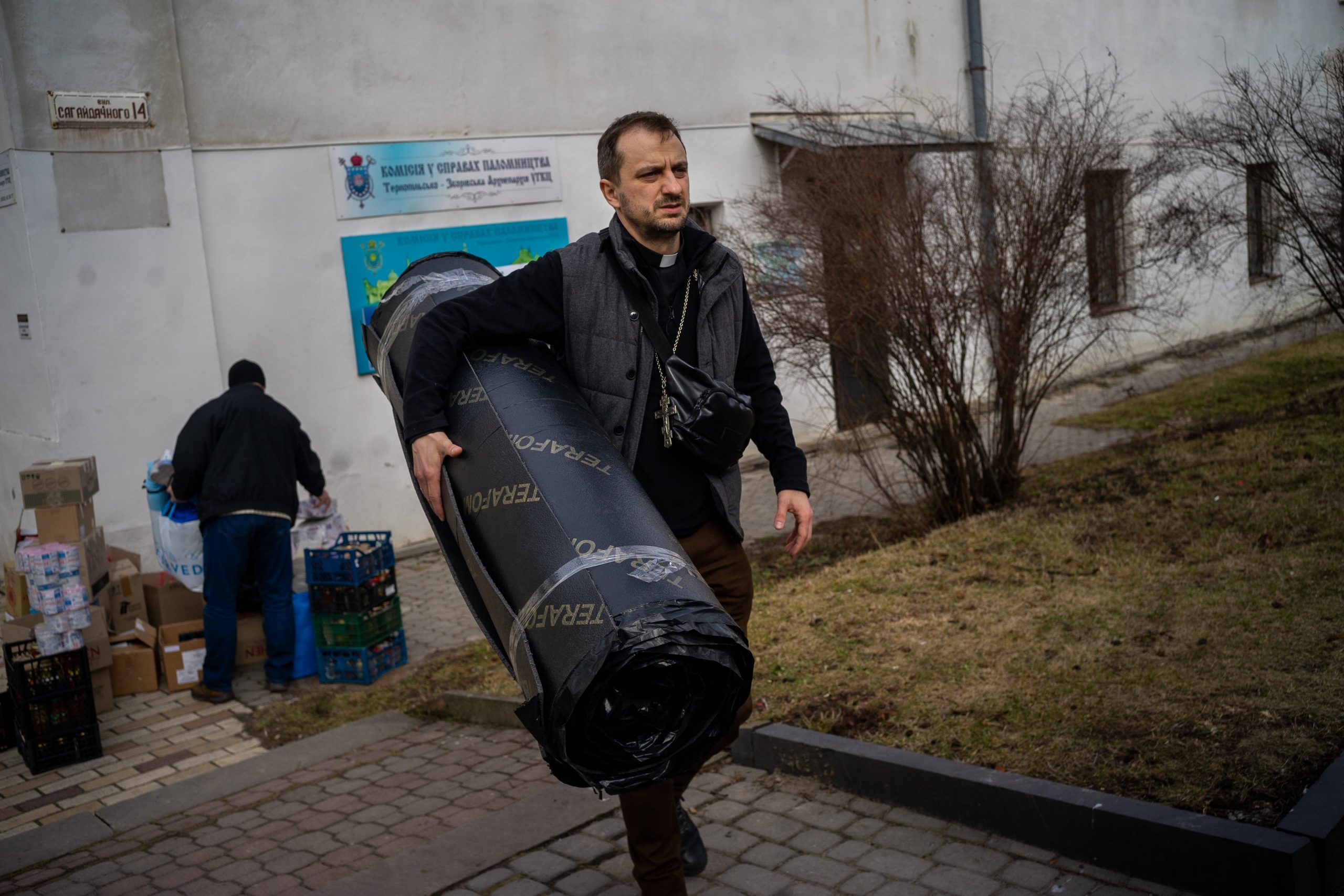
New checkpoints and defensive anti-tank obstacles continued to go up at different locations around Ternopil. Road signs have been taken down to make it harder for potential Russian invading units to find their way.
People continued to journey to the west to Lviv and Poland. Police at the train station stopped journalists from working there, though, because they said that the sight of people getting on trains would increase panic, "whereas, as you know, it's like this on the train much of the time normally, anyway."
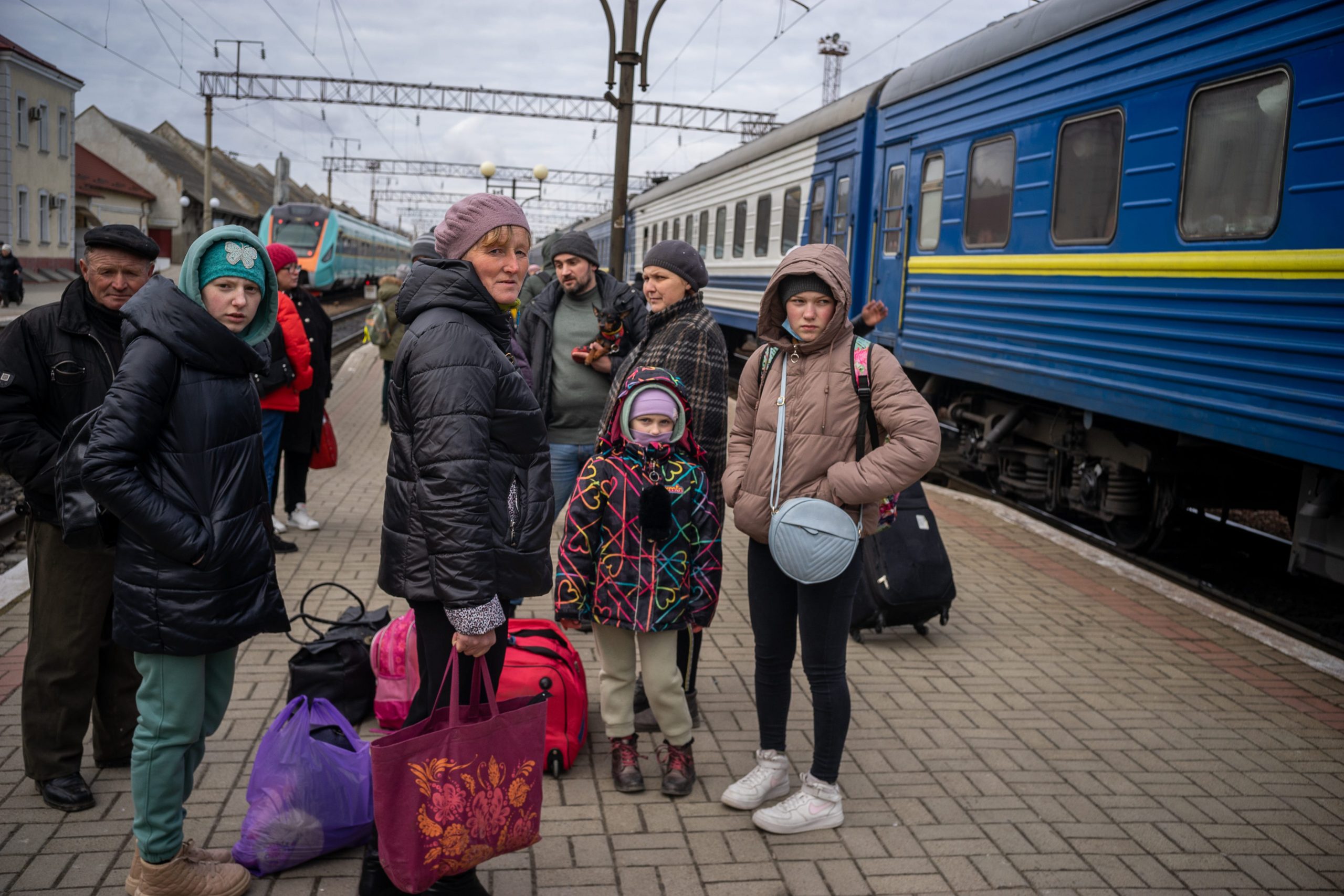
Ihor Volenuk (below), who works in sales in his hometown of Ternopil, admitted that he loves the outdoors and animals and … feeding the pigeons. "Yes, I bring the kids on the weekends here sometimes and we feed the pigeons," he said, as his two daughters squealed with laughter while the birds frolicked all over them in the plaza in front of Ternopil's Taras Shevchenko Theater.
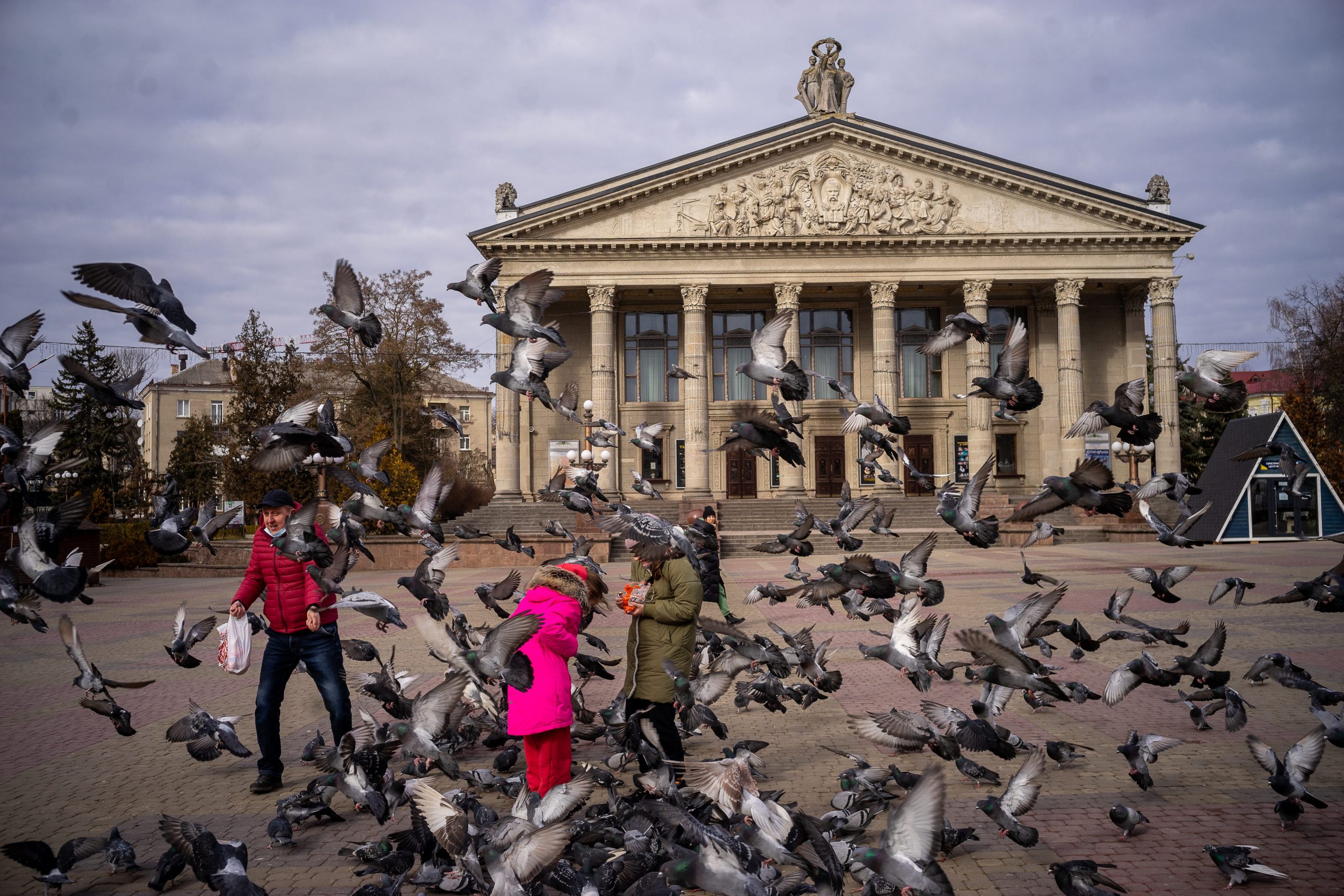
Volenuk's sister Oksana, a corporate manager, had fled the Russian invasion from Kyiv to stay with her brother and his family. "It's so important to have a little happiness right now," she said. "We've been so stressed. This is how we do not lose our minds."
Dusk comes quickly in winter, and loudspeakers announced a 10 pm to 6 am curfew. But because of the blackout against Russian aircraft, the streets were quiet much earlier than 10. That blackout had an additional unintended consequence: It meant that a far greater number of stars and constellations could be seen above in the night sky.
